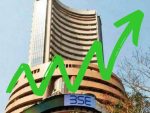
Reliance to capture half of online grocery sales: Goldman Sachs
Team Udayavani, Jul 21, 2020, 7:38 PM IST

In a report titled ‘Global Internet: e-commerce’s steepening curve’, Goldman Sachs said the Covid-19 pandemic has driven a doubling of penetration of e-commerce globally with categories such as consumer packaged goods driving as much as three years of penetration growth in three months.
“We forecast India e-commerce will reach USD 99 billion by 2024, growing at a 27 per cent CAGR over 2019-24, with grocery and fashion/apparel likely to be the key drivers of incremental growth in our view,” it said.
Online penetration of retail is expected to reach 10.7 per cent by 2024, versus 4.7 per cent in 2019.
“The biggest near term theme in India internet, in our view, is the foray of Reliance Industries (India’s largest market-cap company with presence across sectors such as energy, telecom, and retail) into e-commerce, and the company’s tie-up with WhatsApp for online grocery,” it said.
Facebook has picked up a 9.99 per cent stake in Jio Platforms, the subsidiary of RIL that houses the country’s youngest but biggest telecom company as well as an array of apps. RIL’s e-commerce venture, JioMart plans to use Facebook’s WhatsApp to connect local grocery stores with customers.
Online grocery has been growing at over 50 per cent year-on-year for the last couple of years, but with the outbreak of Covid-19 resulting in shift to online, and the recent entry of RIL, the growth will accelerate to 81 per cent CAGR during 2019-24, it said.
“We believe RIL’s partnership with Facebook could result in the company becoming a market leader in the online grocery space, with more than 50 per cent share by 2024,” it said. “Having said that, we do see grocery as a large category for two or more players to co-exist over time.”
Growth in India’s e-commerce, the brokerage said, is likely to come from better penetration into categories such as grocery/FMCG, improving payment ecosystem and ease of shopping through WhatsApp etc.
“We expect non-grocery e-commerce penetration to see a sharp increase of 500 basis points over the next two years to reach 16.1 per cent by 2021,” Goldman Sachs said adding the last 500 basis points of the increase took four years.
While online penetration in categories such as consumer electronics is fairly high at about 40 per cent as of 2019, there exists significant growth in categories like apparel, appliances, health and personal care, where online penetration in India remains materially lower when compared with peers such as China.
“As far as incremental growth in e-commerce is concerned, we expect grocery to be the biggest driver with 40 per cent contribution to incremental e-commerce GMV (gross merchandise volume) between 2019 and 2024,” it said.
“However, online penetration currently stands at less than 0.5 per cent (absolute size USD 2 billion), one of the least among categories,” it said projecting the online grocery market in India to grow 20x over the next 5 years, to reach USD 29 billion in value (5.1 per cent penetration) by 2024.
It saw a higher acceptance of online purchases among Indian consumers, especially since Covid-19, as one of the key drivers.
Other drivers include RIL’s foray into the space leveraging its large offline distribution capabilities and ability to order groceries through WhatsApp – a platform with more than 400 million users in India.
“Overall, we forecast online grocery orders to grow from 300,000 per day in 2019, to more than 5 million per day by 2024,” it said.
Goldman Sachs said the coronavirus pandemic has driven an acceleration in the adoption of countless technologies and consumer behaviours, chief among them being e-commerce.
“What started at first with panic buying, hoarding and nest feathering out of necessity has turned into an array of adaptations that have driven e-commerce penetration from 16 per cent of retail spending in the US in 1Q19 to over 40 per cent in May driven by year- over-year growth of nearly 70 per cent,” it said.
Globally, e-commerce would grow 24 per cent, it added.
Udayavani is now on Telegram. Click here to join our channel and stay updated with the latest news.
Top News
Related Articles More

Kotak Mahindra Bank shares tank 13%; mcap erodes by Rs 37,721 crore post RBI action

Four-day market rally makes investors richer by Rs 8.48 lakh crore

Kotak Bank barred from onboarding customers online, issuing fresh credit cards

Reverse migration has begun, says FM Nirmala Sitharaman

Markets sustain winning streak — Sensex jumps over 560 points, Nifty tops 22,300-level
MUST WATCH
Latest Additions

AAP’s Sanjay Singh writes to PM, LG; alleges Kejriwal kept under CCTV surveillance in jail

Orange alert: Karnataka State Disaster Management cell issues animated advisory

PM Modi to begin 2-day whirlwind campaign in Karnataka from Apr 28

SC imposes Rs 5 lakh costs on Centre for filing frivolous petition

Lokayukta raids Ballari Urban Development Authority, uncovers corruption scandal






















